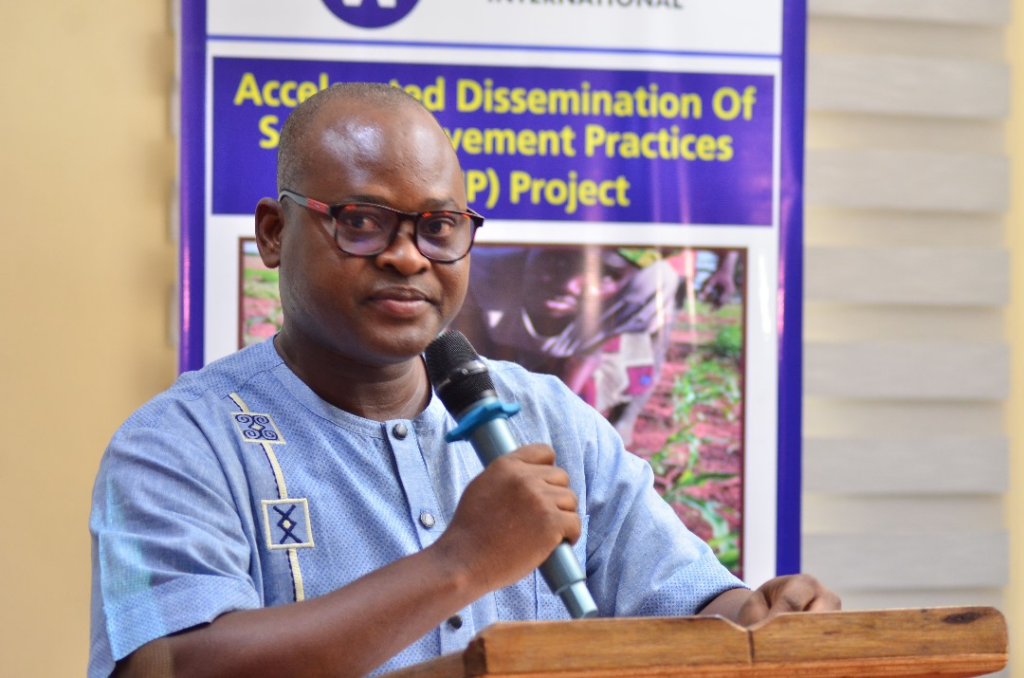Winrock International, an agriculture and environment-centred NGO, has successfully concluded its two-year Accelerated Dissemination of Soil Improvement Practices (ADSIP) project in the Upper East Region.
The project, funded by USAID, aimed to enhance soil fertility and address agricultural challenges faced by farmers in the region.
The ADSIP project trained 104 Extension and Advisory Service Providers (EASPs), including government agents, agro-input dealers, and community-based agents for two years.
Of this number, 32% were women, reflecting the project’s commitment to gender inclusiveness in agricultural development.

These trained professionals subsequently transferred their knowledge to 2,293 farmers in three months, significantly expanding the project’s reach and impact.
Speaking at the project’s closing ceremony in Bolgatanga, the Activity Coordinator of ADSIP at Winrock International, Philip Atiim, highlighted the severe challenges facing farmers in the Upper East Region, particularly concerning soil fertility and the growing impacts of climate change.
He emphasised the need for sustained efforts to build on the project’s successes.
“Extension services play a crucial role in this transformation, and they must be responsive to the specific needs of all farmers, especially women farmers who represent a significant portion of the agricultural workforce in Ghana”, he said.
He added that women farmers often face unique challenges related to access to resources, training, and information, and extension services must be tailored to meet these needs.
“In doing so, we ensure that no farmer is left behind in the journey towards sustainable and resilient agriculture”, he said.

The project also partnered with the Havener-Dowswell Scholarship Program to provide scholarships to six female students for the 2024-2025 academic year.
These scholarships will support the students to pursue degrees in agriculture at the University for Development Studies in Tamale.
Delivering the keynote speech, a former Upper East Regional Director of the Ministry of Food and Agriculture, Roy Ayariga, emphasised the importance of investing in agricultural education and extension services to foster resilience in the face of future disasters.

“The extension officer-farmer ratio is 1 to 1,500. The ideal situation should be 1 to 500, but is it at 1 to 1,500 because MoFA does not have money to recruit more (extension officers)? So, it is good that ADSIP is training extension staff”, he said.
The ADSIP project is a significant leap toward sustainable agricultural practices in Northern Ghana.
By equipping farmers, extension officers, and other stakeholders with the necessary tools and knowledge, the project has laid a foundation for improved soil fertility, climate change mitigation, and enhanced agricultural productivity in the Upper East Region.
DISCLAIMER: The Views, Comments, Opinions, Contributions and Statements made by Readers and Contributors on this platform do not necessarily represent the views or policy of Multimedia Group Limited.
